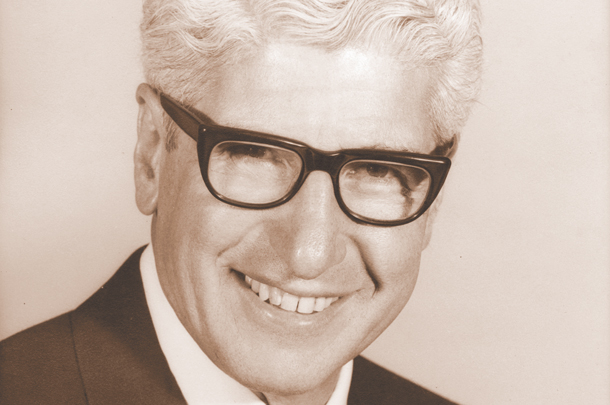When Norman Levan, MD, passed away at the age of 98, he left a gift totaling $12 million to the Keck School of Medicine of USC.
Levan, a professor emeritus and former chief of Dermatology at the Keck School, left $10 million upon his death in May 2014 to support scholarships and $2 million in support for the Norman E. Levan Chair in Medical Ethics, which he established in 2010 with an original gift of $2 million.
In 2007, Levan donated nearly $6 million to establish the USC Levan Institute for Humanities and Ethics, thus totaling $20 million in donations to the school he loved.
“Norman Levan was a gifted clinician and so much more,” said Dean Carmen A. Puliafito, MD, MBA, who gave the eulogy at Levan’s funeral. “He was an intellectual with boundless curiosity about human nature and the human condition, which explains why he thought that medicine and medical ethics was so vitally important.”
This generosity reflects Levan’s 82-year connection with USC. At age 16, Levan enrolled as a literature major at USC. He later returned to attend the School of Medicine, from which he graduated in 1939. After serving in the Army Medical Corps during World War II, he began a practice in dermatology and joined the faculty of the Keck School. He was chair of the Department of Dermatology for 20 years, from 1961 to 1981. During that time, he established the Hansen’s Disease Clinic for leprosy at L.A. County+USC Medical Center.
Levan practiced medicine for 70 years and saw patients at his private practice in Bakersfield until age 95.
Although the monetary gifts are remarkable, perhaps the greatest contribution Levan made to the Keck School was integrating ethics into the medical curriculum. Collaborating with a USC professor of religious studies, Levan helped to create the Keck School’s first classes in bioethics, which led to ethics classes being required for medical students at the Keck School.
Levan’s legacy will continue to influence students for generations to come through his scholarship opportunities and the USC Levan Institute for Humanities and Ethics, which will continue to provide opportunities to engage in multidisciplinary dialogue, discuss and reflect on moral decision-making with regard to medicine, and develop innovative methods to respond to society and the world as ethical health care professionals.
“Levan’s contributions will transform the lives of countless students who will leave this university and go on to change the world,” said USC President C. L. Max Nikias.
— Sharon Brock


